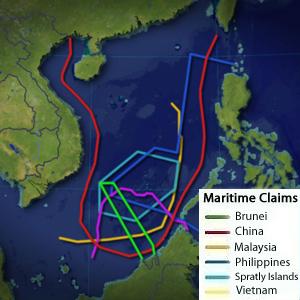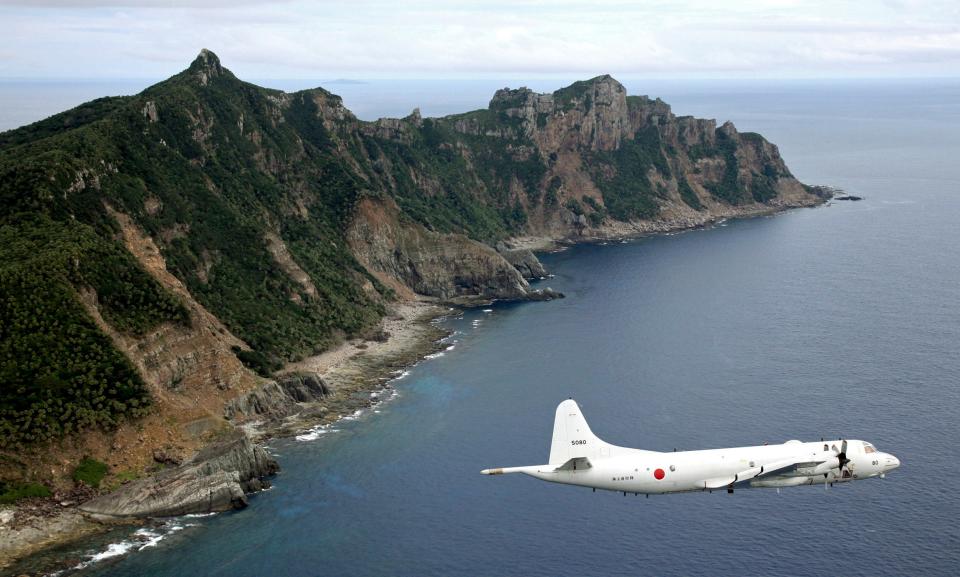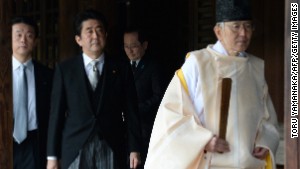US Pacific commander warns of growing China-Japan tension over disputed islands
By MATTHEW PENNINGTON
Jan 23, 1:26 PM EST
Associated Press
Admiral Samuel Locklear III, commander of US Pacific Command, delivers remarks during a press conference at the Pentagon in Washington, January 23, 2014 (AFP, Jim Watson)
WASHINGTON (AP) -- The commander of U.S. forces in the Pacific said Thursday the tensions between China and Japan are likely to grow unless they talk to each other.
The two Asian powers are at loggerheads over remote islands that are administered by Japan but also claimed by China. Beijing has also been angered by a recent visit by Japan's prime minister to a controversial war shrine.
Adm. Samuel Locklear told a news conference that "the risk calculation can grow" when two large powers have a disagreement but aren't talking to each other and when there's no clear resolution in sight.
Washington's treaty obligations to its ally Japan mean it could be drawn into a conflict over the islands, known as Senkaku by Japan and Diayou by China.
Locklear said the U.S. has to continue to encourage restraint and professionalism by the two nations' maritime security forces operating around the islands, and hope for a diplomatic solution.
"In many cases, those are young naval officers or young civilian mariners who are out there" making decisions, Locklear said.
China's assertive behavior in pursuing its territorial claims have rattled its neighbors and raised the stakes as its military buildup challenges decades of U.S. predominance in the Asia-Pacific.
Locklear said the U.S. and China have made some progress in forging military ties, but he criticized China's conduct during a near-collision between their warships in the South China Sea in December.
The Dec. 5 incident involving USS Cowpens and a Chinese naval ship was "unnecessary," Locklear said, attributing it to "unprofessional" Chinese conduct or a "lack of experience."
China's defense ministry has given few details about the confrontation - the most serious incident between the two navies since 2009 - but said its ship handled it according to operating procedures. Chinese media reports blamed the U.S. ship for getting too close to vessels escorting China's new aircraft carrier Liaoning.
"This just highlights to both of us, to both the PLA and to the U.S. military, that we have to do better at being able to communicate with each other in a way that allows us to not lead to miscalculation," Locklear said, referring to the People's Liberation Army, as China's military is formally known.
Locklear acknowledged he's not yet able to "pick up the phone and talk directly toa PLA navy admiral or general at the time of a crisis."
Turning to North Korea, Locklear confirmed that the U.S. would be conducting key military exercises with ally South Korea in February, despite demands from the North that they be canceled.
Locklear described North Korea as "a potentially very dangerous place," and questioned whether its young leader, Kim Jong Un, "is always in the rational decision-making mode or not."
Since taking power two years ago, Kim has drawn international condemnation for conducting long-range rocket and nuclear tests. The December execution of Kim's powerful uncle, a key interlocutor between Pyongyang and its ally China, has raised questions about the stability of his authoritarian government.





 Reply With Quote
Reply With Quote



 .
.




Bookmarks